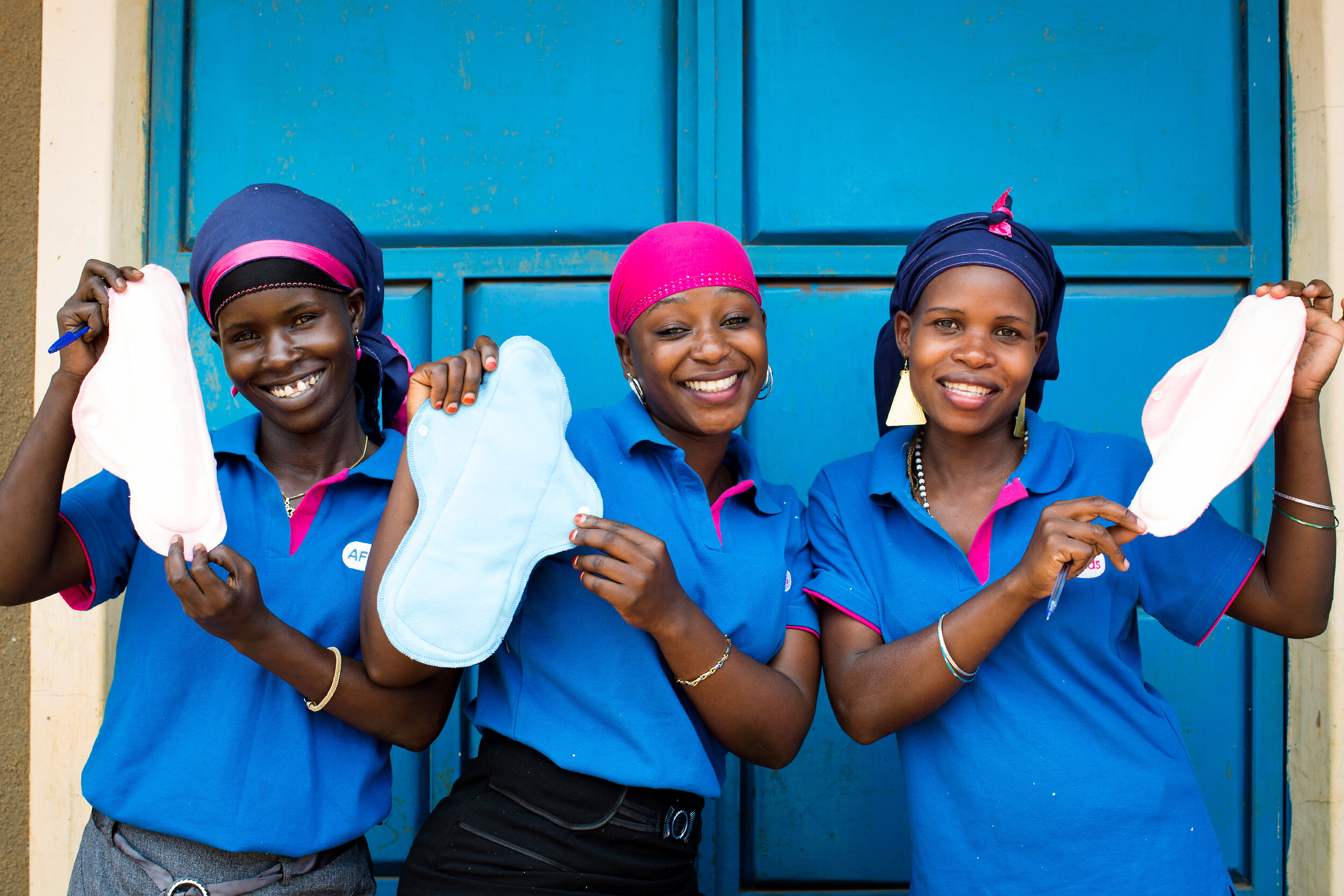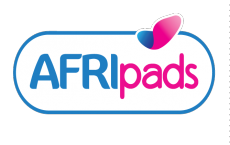AFRIpads
AFRIpads
Simple Personal Hygiene Solution Changing Women’s Lives.
BCTA MEMBERSHIP STATUS
Alumni
SECTOR
Consumer Goods, Manufacturing, Construction & Housing, Water, Sanitation & Waste Management
HEADQUARTERS
Kenya
REGION OF INITIATIVE
Africa
SDG CONTRIBUTION
RELATED NEWS
AFRIpads, a social enterprise that manufactures menstrual hygiene products, has pledged to provide 1 million reusable sanitary pads each year to low-income communities across Africa by the end of 2020. The company also commits to provide training and employment to 250 low-income people – 80 percent of them women.
In Africa, access to menstrual hygiene products is limited. Conventional disposable sanitary pads are rarely available and when they are, they are costly and cause a lot of waste. Women and girls who can’t afford disposable pads must use rags or newspaper to manage menstruation. This limits women’s mobility and independence. In Uganda, it is one of the reasons girls drop out of secondary school at a much higher rate than boys.
Access to affordable menstrual hygiene products gives women the dignity to become active and productive members of society, yet few companies have stepped in to meet the overwhelming demand for these products in low income communities. AFRIPads seeks to empower women and girls by making its environmentally-friendly sanitary pads available at an affordable price, and by providing training and employment to approximately 200 women in the manufacture of these life-changing hygiene products.
The company’s inclusive business model was developed by assessing women’s needs and creating a product that is highly absorbent, washable and reusable. Not only does AFRIpads’ reusable design lower cost to a third of disposable pads, it significantly reduced the impact on the environment. To date AFRIpads has prevented 190 million disposable sanitary pads from ending up in the environment.
Initially, AFRIpads’ reusable sanitary pads were made available through collaborations with NGOs and humanitarian organizations who provide the pads to hundreds of thousands of refugees and school girls across Africa each year. In 2015, AFRIpads introduced their retail brand, So Sure, to ensure girls and woman can access affordable sanitary pads in their local shops and supermarkets.It has initiated personal story-based marketing campaigns to increase consumers’ awareness of its product and broaden its access to retail outlets. As a result, retail sales of AFRIpads have tripled compared to the previous three years.
The company will soon begin construction of a 1,700 m2 factory in rural Uganda to centralize its manufacturing operations and increase production to meet growing demand. It has also recently established two new offices in Malawi and Kenya to improve distribution and access in the region.




